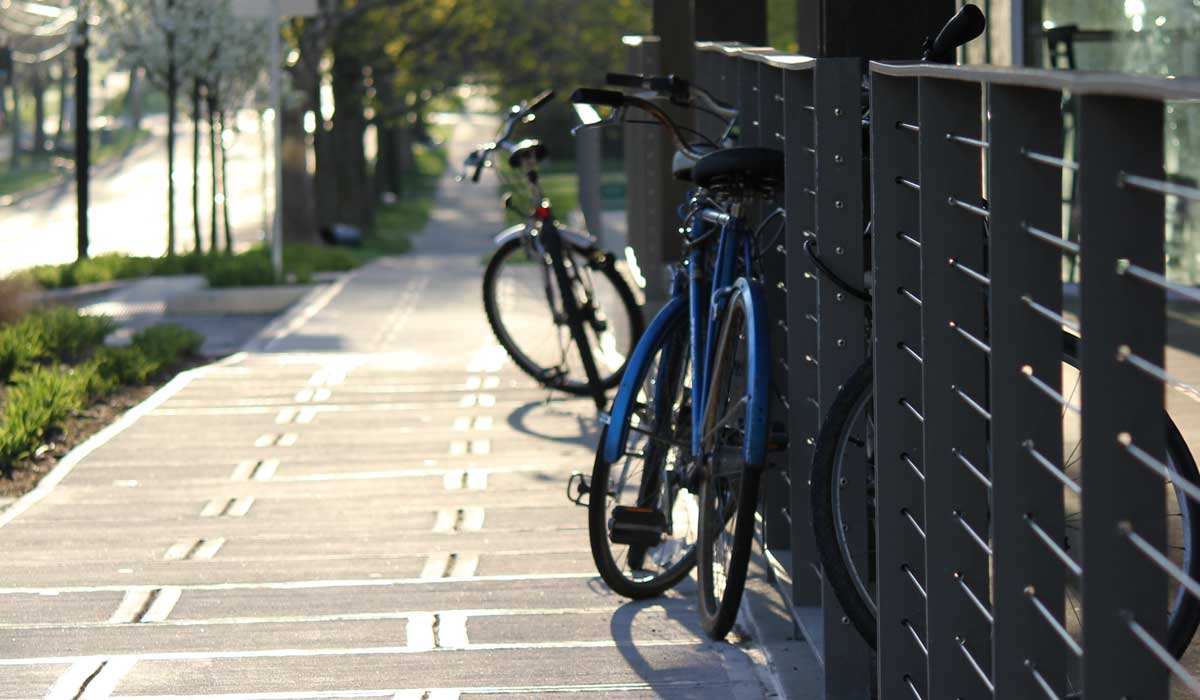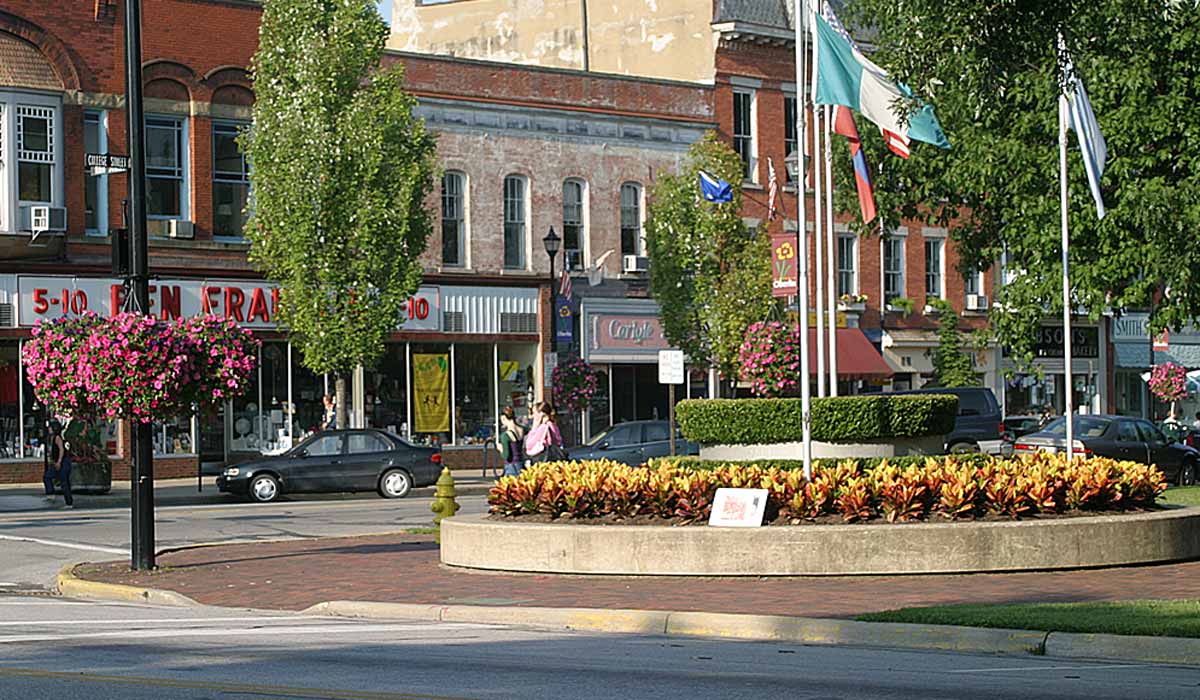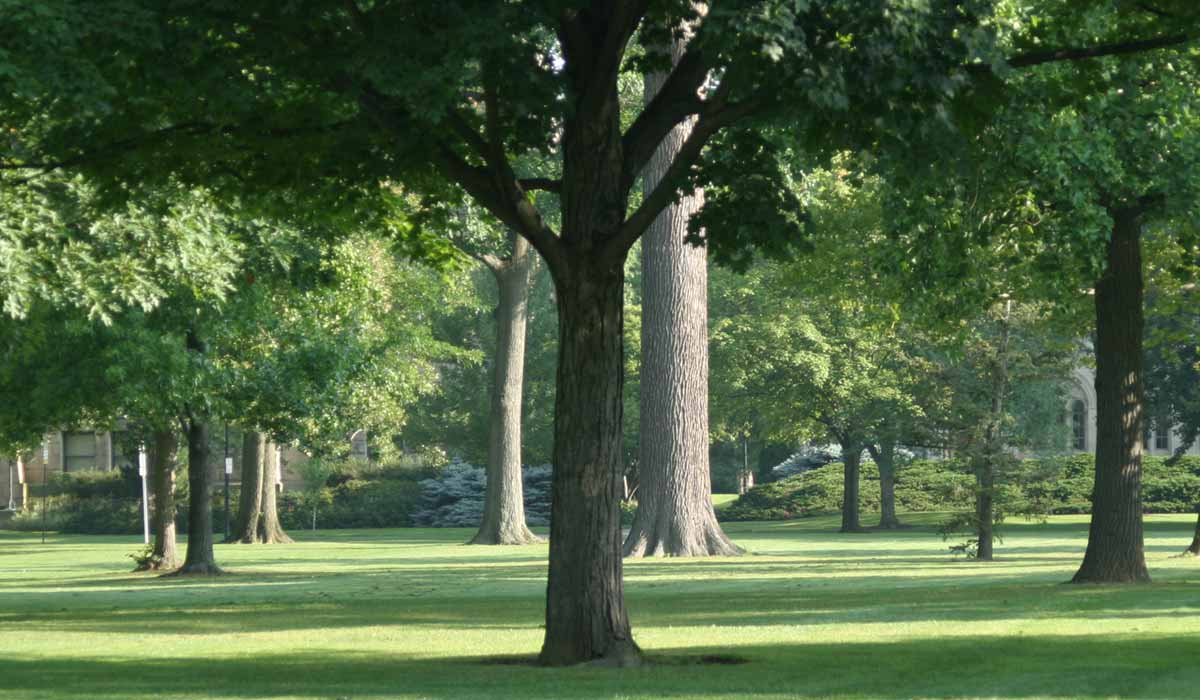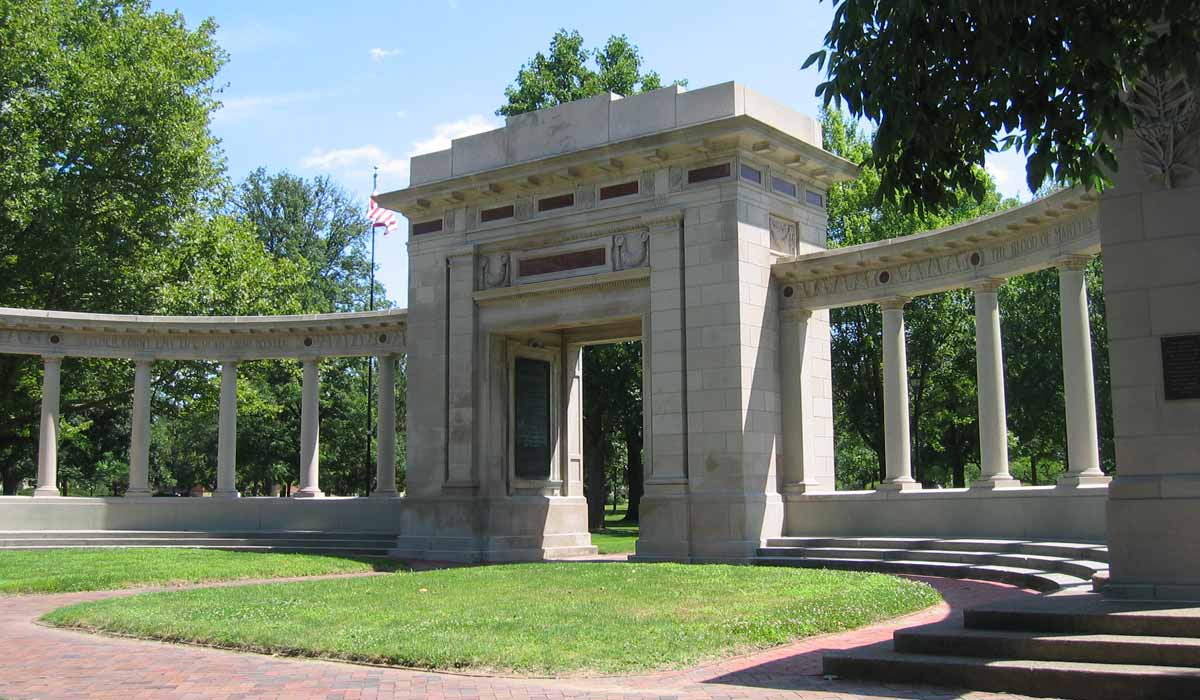Cooler in the Shade
- Hits: 5597
- 0 Comments
- Subscribe to updates
- Bookmark
I don’t know if it’s hot as you’re reading this, but it is HOT while I’m writing it. In Oberlin, the days we use the most electricity are the hot ones – everyone has their air conditioning on, and the refrigerators are working over time to keep things cool. As the planet heats up, we are going to have more and more hot stretches to make it through. But we can be smart about how we do it.
My family survives most of the summer without using AC – and the house never gets above 78 degrees (80 degrees is my freak-out point, and no one wants to go there!). We have two main strategies: The first is keeping heat out of the house in the first place. The second is to get in as much cool air into the house at night as we possibly can, then lock it in during the day.
To keep the heat out, we have insulated and weatherized our house as thoroughly as possible. People usually think about insulation as a blanket – something that keeps the heat in. What it’s really doing is keeping heat from moving from place to place. So if it’s hotter outside, it’s keeping heat out. In July, that’s a good thing.
So if you haven’t already, this is the time to insulate your home! Columbia Gas’s amazing Home Performance Solutions program provides a very thorough low-cost inspection, and huge rebates of up to 60% of the total cost (90% for low-income families). They have already done dozens of homes in Oberlin; call 1-877-644-6674 to set up an appointment. Most people don’t think about insulating at this time of year, so it will be easy for you to schedule an audit, as well as schedule work with an insulation contractor.
There are other things we do to keep the heat out in the first place. We have swapped out all of our incandescent light bulbs for compact fluorescents. Part of why incandescent bulbs are so inefficient is because a bunch of the electric energy gets turned into heat, not light. When it’s 95 degrees outside I do not want that heat in my house.
We also close curtains over sunny windows, and hang a light blocking shade over our big sliding glass door. We avoid using the oven at all costs, and only run the dishwasher at night.
As long as it cools down to the 60’s at night, we can get our house very cool overnight by opening all the windows, and using fans to draw in the night air. Then, as soon as we get up in the morning, we close all the windows in the house, and trap the coolness inside. Using this method, we keep the house very comfortably in the 70’s without ever using air conditioning. (It’s a different story when it stays hot at night, I confess.)
Sometimes people think that it’s a good idea to leave a top-story window open during the day, to let rising hot air escape. This is NOT a good thing to do. Would you leave a basement window open in winter to let cold air “escape?” Of course not! Heat flows from warmer spaces to cooler spaces, and an open window makes that easier. If it’s cooler inside than outside, you’re better off keeping the house closed up.
Of course, that’s especially true if you do run air conditioning. Make it easier for your AC unit to get the job done by keeping the space around the unit free of debris and weeds. Placing the unit in the shade helps as well. When you buy a new unit, get the most efficient one you can. For room air conditioners, the energy efficiency ratio (EER) rating should be above 10; for central air conditioners, the seasonal energy efficiency ratio (SEER) rating should be above 12.
If you’d like a friendly person to talk to you about how to decrease your energy use this summer, you’re in luck: POWER, the Oberlin-based non-profit committed to energy efficiency, is offering free energy assessments. Trained Oberlinians can help you figure out what work is worth doing on your home, how you can benefit from existing programs, and how you can change simple behaviors to save energy and money. Call Pat Knight at 440 789 4531 to schedule an appointment.
Cold showers? Ice cube therapy? How do you stay cool in the summer? Share your tips below.










Leave your comment